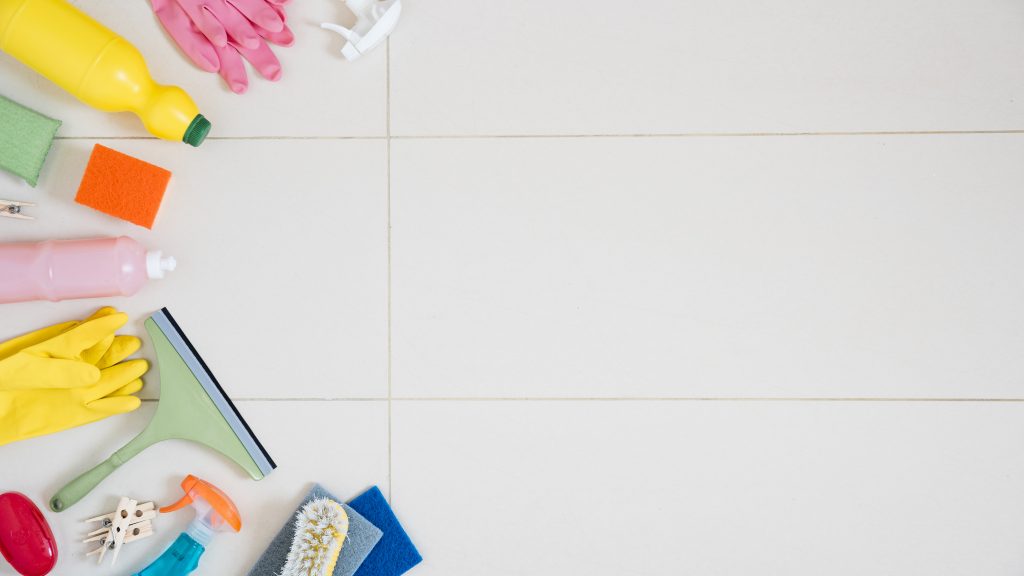
The best way to protect yourself against the coronavirus’s growing spread is always to stay home and self-isolate. But the new CDC guidelines suggest you should try wearing a pair of Vinyl Vinyl gloves, in addition to protecting your hands, whether you’re going to venture outside, whether for shopping, for a run, or for important errands.
According to the CDC, vinyl gloves will serve as a barrier of defense against germs you can come into contact with. And while officials state that “transmission through respiratory droplets” is now the most frequent means of transmitting COVID-19 (hence the face masks), there may still be “transmission of a novel coronavirus from surfaces contaminated with the virus.”
The CDC says that vinyl glove should be worn while washing, picking up food (either takeout or groceries), doing laundry, and engaging with others to help reduce your risk.
Vinyl gloves can, of course, only do too much to secure you; all the normal best practices should still be adhered to, such as washing your hands with soap and water and avoiding contact with the face.
Bear in mind because, theoretically, something you handle with your Vinyl gloves may also be tainted. So make sure you wipe down your phone, passport, purse, door handles, and everything else that comes into contact with your gloved hands.
When to Use Vinyl gloves
When Cleaning
It is recommendable to wear vinyl gloves when you are washing and disinfecting your house. Follow the warnings given on the label of the disinfectant product, which may include—
You have decent ventilation by flipping a fan on or opening a window to get fresh air into the space you vacuum. After the vinyl gloves have been removed, ensure you wash your hands.
When Caring For Someone Who Is Sick
You should still wear vinyl gloves while you are providing treatment to someone who is sick at home or in another non-healthcare setting..
Use plastic vinyl gloves for washing and disinfecting the environment surrounding a person that is sick or on other areas that might be regularly visited at home.
When touching or making contact with blood, stool, or bodily fluids, such as spit, mucus, feces, and urine, use your disposable vinyl gloves.
Put them back into a lined garbage can by using plastic vinyl gloves. Do not clean the vinyl gloves or reuse them.
After removing the vinyl gloves, wash your hands.
When Vinyl gloves aren’t Needed
Despite these examples, whether using a shopping cart or using an ATM, using vinyl gloves does not automatically protect you from using COVID-19 and still encourage germs to spread.
When doing errands and after going out, the safest way to shield yourself from germs is to wash your hands with soap and water every day for 20 seconds or use hand sanitizer with at least 60 percent alcohol.
Wearing Vinyl Gloves Properly
It is important to know how to put them on and remove them properly if you are going to wear gloves when out in public. Otherwise, you risk being infected.
You should carefully wash your hands before slipping on Vinyl gloves, according to the CDC. They should cover your hands as well as your wrists full.
Use the glove-in-glove technique or bird beak technique before removing the gloves. Immediately put your gloves away in a garbage can and then wash your face. Do not wear a pair of vinyl gloves more than once.
And again, regularly washing your hands is also the safest way to stop contamination with COVID-19. Using soap and water to wash your hands for 20 seconds or longer. Using a hand sanitizer that contains at least 60 percent alcohol if soap and water are not available.
Vinyl Gloves Can Still Spread Germs
When going out in public, the safest choice is not to wear gloves but to exercise proper hand hygiene. Wearing Vinyl gloves is not a substitution for handwashing in either way. In fact, regularly washing your hands for 20 seconds or more is still the best defense against COVID-199.
Vinyl gloves can provide a false sense of protection. When it comes to germs, they are not a complete shield. The COVID-19 virus will live on Vinyl gloves as well, much like your bare hands. So, regardless of whether you are wearing gloves, you can fear contamination if you touch a dirty surface and then touch your skin.
It is also important to note that airborne COVID-19, which means that when an infected person coughs, speaks, or sneezes, the virus spreads primarily by droplets. It is not possible to absorb COVID-19 germs from your hands into your bloodstream. Therefore, a much safer way to defend yourself from COVID-1919 is to wear a cotton face mask in public settings.
Recommended Precautions
Before putting on the gloves and getting them off, hands should either be cleaned or sanitized. As advised by Ontario Public Health and CDC, guidance on taking off gloves should be written. The Public Health Agency of Canada’s (PHAC) guidance video is also available.
The gloves should be replaced when they get soiled or damaged. With the gloves on, the staff does not touch their heads. Disposable gloves should be tossed out after they have been discarded and not seen again.
For a single encounter with suspected or confirmed COVID-19 patients in health care facilities, gloves are usually disposed of. In non-healthcare contexts, individuals often use the same pair of gloves to touch different surfaces, including their phones.
If one of the surfaces they contact is tainted with viruses, several surfaces can be infected, which may raise the chance of you and others having COVID-19.
The thought of washing hands may draw any staff with plastic gloves on or using a hand sanitizer on the gloves for disinfection. However, these procedures are not advised because washing will disrupt the gloves’ dignity, and the hand sanitizer is intended for use on the human skin, not on the materials of the gloves.

